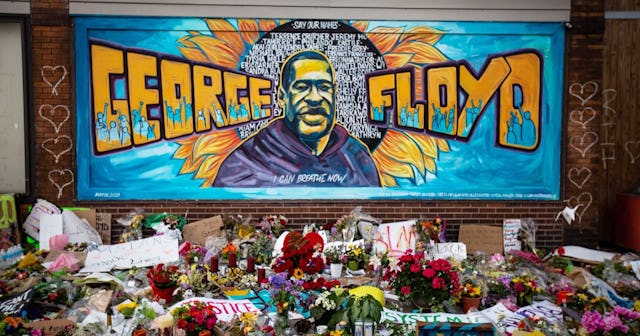Minneapolis To Ban Police Chokeholds In The Wake Of George Floyd's Death

Police will also be required to report and intervene anytime they witness unauthorized use of force by another officer
According to the Associated Press, the city of Minneapolis will ban the use of chokeholds by police. They will also require police to report and intervene anytime they witness unauthorized use of force by another officer, regardless of tenure of rank.
The City Council is expected to approve the agreement today.
The moves are part of a stipulation between the city and the Minnesota Department of Human Rights (MDHR), a state-level governmental body that aims to protect the civil rights of Minnesotans through the Minnesota Human Rights Act. Earlier this week, MDHR launched a civil rights investigation into the Minneapolis Police Department in response to the death of George Floyd in police custody.
When passed, the agreement will require any officer to immediately report the use of any neck restraint or chokehold from the scene to their commander or commander’s superior. And, any officer who sees another officer commit unauthorized use of force must intervene verbally and physically. Those who don’t will be subject to discipline “as severe as if they themselves had used the prohibited force,” AP reports.
The agreement also states that police must receive authorization from the police chief or a designated deputy chief in order to use crowd-control weapons such as rubber bullets, batons, chemical agents, flash-bang grenade, and marking rounds.
“What communities of color and Indigenous communities are facing today is the direct result of 400 years of intentional decisions to create and sustain systems, policies, and processes that have resulted — time and time again — in systematic discrimination and oppression,” MDHR wrote on Facebook. “All of us are called to do everything we can. We are deeply interconnected and we need each other.”
MDHR launched the civil rights investigation on Tuesday, stating that the investigation will review the police department’s policies, procedures, and practices from the past 10 years.
“Minnesota has one of the strongest civil rights laws in the country and it is a powerful tool to address systemic racism and discrimination. That tool is being used today,” they said.
A key witness in the state’s investigation into the four officers, who were all recently charged, Maurice Lester Hall told Good Morning America that the situation escalated quickly. After the police put Floyd in a squad car, they dragged him back out and “jumped on the back of the neck.”
“He was just crying out at that time for anyone to help because he was dying,” Hall told the New York Times. “I’m going to always remember seeing the fear in Floyd’s face because he’s such a king. That’s what sticks with me, seeing a grown man cry, before seeing a grown man die.”